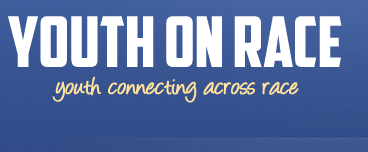

Dr. Martin Luther King, Jr., spent his life fighting for the equality of all people. Photo Credit: humanext.com
By Marlene Caroselli.
Say the word “diversity” and others will probably think immediately of “racial” as a preceding adjective. “Diversity applies to all aspects of ones life, so ”of course it is a word with several definitions. Yes, the most common is racial diversity, but — especially in the workplace — diverse associations are equally common. The word also applies to the difference between people of different genders, sexual orientations, religions, cultures, economic backgrounds, levels of education, work-classifications, etc. “Diverse” is even a word that applies to different thinking styles.
If we accept the definition of “diverse” as “different” or “showing a great deal of variety,” and apply it to workplace teams, we benefit considerably from the research conducted by American psychologist Robert Sternberg. Sternberg developed the Triarchic Model of Intelligence, which includes three elements, analytical intelligence, creative intelligence, and practical intelligence. So, assume you are forming a team to accomplish a given task — at work, home, with neighbors, fellow parishioners, or PTA members. Keeping Sternberg in mind, you have, ideally, at least one logical person, who sees things from a different or unusual perspective, and one who is knowledgeable about the processes involved.
Paralleling Sternberg’s work is a recent article by Judy Chartrand, Ph. D. “How Do YOU Think?” Training: January/February 2013, page 111.) In the article, Chartrand describes seven different thinking styles: Analytical, Inquisitive, Insightful, Open-Minded, Systematic, Timely, and Truth seeking.
In terms of problem solving, most experts agree there are two basic divisions — the convergent approach and the divergent approach. Convergent thinking is logical, predictable, analytical, and dependent upon the scientific method, which tests a hypothesis in order to learn source of the actual problem. The divergent approach utilizes a creative, spontaneous, visual, and necessary approach for situations in which there is no precedent. If you are what is known as “lateralized,” you will employ both approaches equally well.
It is easy to develop your skills in either or both arenas.
To develop your convergent or analytical skills:
- Improve your ability to gauge time requirements.
- Learn more about finance.
- For two weeks, keep a log of the problems you solve each day and the method (if any) you used to solve them.
- Read a biography of an outstanding scientist to develop an appreciation for analysis.
- Clean off your desk and organize your files.
To develop your divergent or imaginative skills:
- Engage in, “what if…” thinking.
- Take an art or music class.
- Whenever you can, imagine the possibilities surrounding a given object.
- Combine two unlikely possibilities and seek a solution in their union.
- Associate with creative people.
In terms of workplace productivity, it really doesn’t matter how many ways of thinking you endorse. What does matter is showing respect for the thinking styles of individuals who seek solutions to problem in a manner that differs from your own. When we go beyond tolerance to appreciation of different thinking styles, we move closer to the ideal outcomes.
Featured Photo Credit: john-adams.nl/images/lecture/lecture692/diversity.jpg








No Responses to “Diversity Applies To All Aspects Of Ones Life”